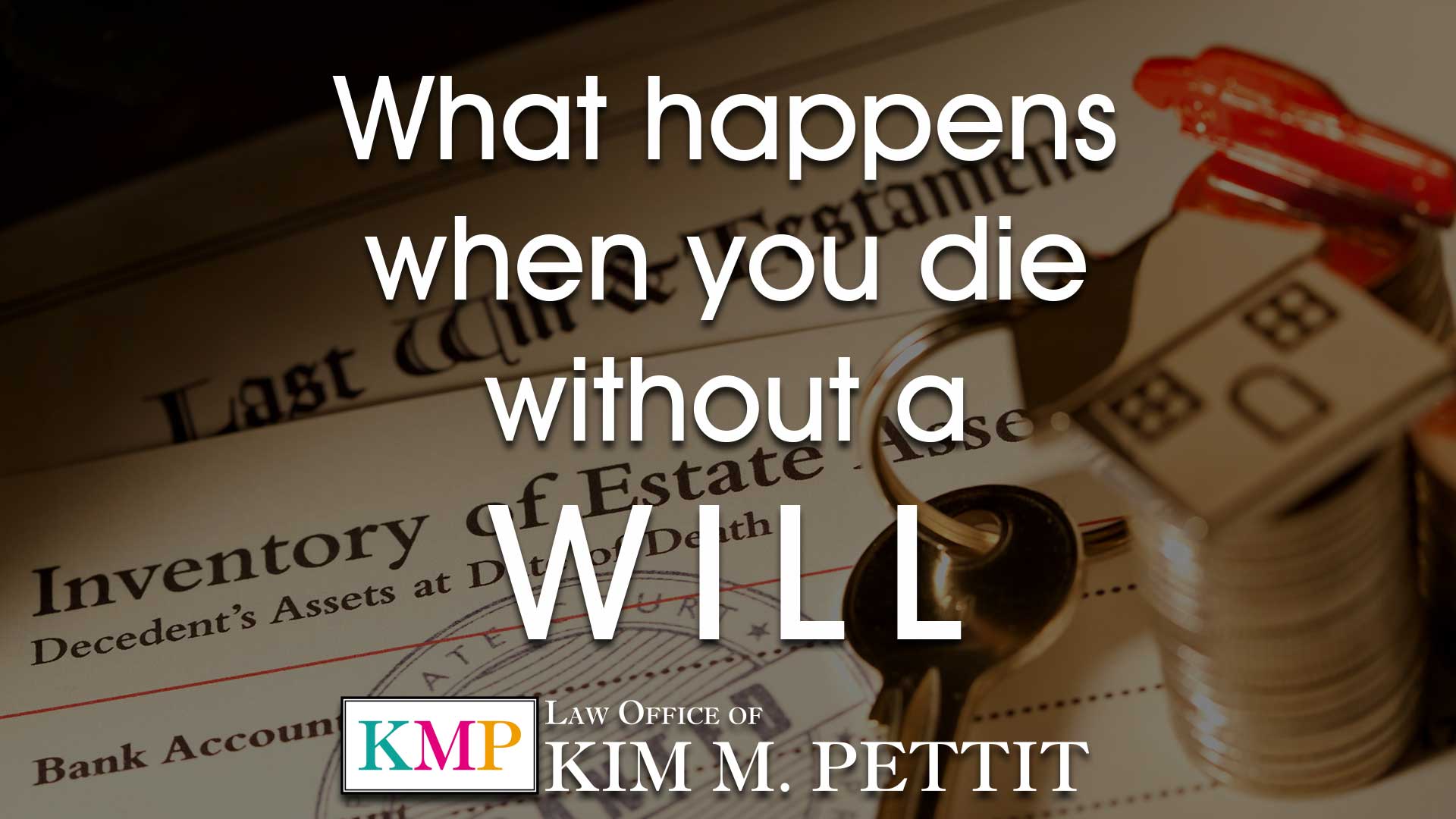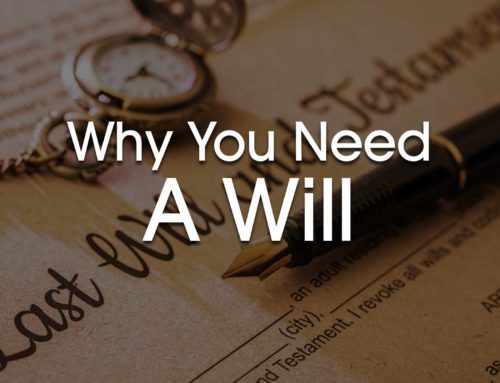According to a May 2016 Gallup poll, only about 44% of Americans say they have a will that describes how their estate will be handled after their death. Most people have thought about making a will and other estate documents but just haven’t gotten around to doing it. It is difficult to discuss planning for your own death. There are many benefits to having a will, but not everyone has one. Just don’t be like some famous musicians who died without a will. There is more about that at the end of this article.
What happens to your estate when you die in Texas and do not have a will? Will it go to the people you want to receive it? The Texas Estates Code determines how your estate gets divided if you don’t have a will. It does not take into account your wishes.
Single, Do Not Have Any Children, and Die Without a Will
- If both of your parents are alive, half of your estate goes to your mother and half goes to your father.
- When only one parent is alive, then half of your estate goes to that parent and the other half passes to your siblings or their descendants (your nieces and nephews) equally.
- When only one parent survives and you do not have any siblings, then all of your estate passes to your surviving parent.
- If neither of your parents survives, but you have surviving siblings, then all of your estate goes to your siblings or their descendants equally.
- If you have no surviving descendants, parents, siblings, or descendants of siblings, then your estate is divided into two halves. Half passes to relatives on your mother’s side beginning with your maternal grandparents. The other half passes to the relatives on your father’s side, starting with your paternal grandparents. If one side of the family has completely passed away, then your entire estate passes to the surviving side of the family.
Single, Have Children, and Die Without a Will
In this case, all of your estate would pass to your descendants. If all of your descendants are of the same degree of relationship (they are all your children or grandchildren), your estate will be divided equally among them. What if they are not of the same degree of relationship? Then, the younger generation would only get the share that the older generation would have received. For example, say a child of yours dies before you do. He or she left children or grandchildren of their own. In this situation, what would have gone to your deceased child will be equally shared among his or her children or grandchildren.
Married, Do Not Have Any Children, and Die Without a Will
Texas is a community property state. “Community property” is presumed to be all property that was acquired during the marriage. “Separate property” is property that can be defined as anything that is acquired in the following ways:
- Before marriage
- By will or intestate succession
- As a gift from a third party
- As a gift from your spouse
- For personal injury
“Separate property” does not include property recovered for loss of income or earning capacity. That is considered community property.
If you are married and do not have any children, then your surviving spouse will inherit all of your community property and all of your separate personal property. But if you have separate real property, then it is divided as follows:
- If both of your parents survive, then your surviving spouse gets half of your separate real property and your parents each get a fourth.
- If only one of your parents survives and you have surviving siblings or their descendants, then your surviving spouse gets half of your separate real property, your surviving parent gets a fourth of your separate real property, and your surviving siblings or their descendants get the other fourth.
- If only one of your parents survives and you do not have any surviving siblings or their descendants, then half of your separate real property goes to your surviving spouse and the other half goes to your surviving parent.
- If neither of your parents survives and you have surviving siblings or their descendants, then half of your separate real property goes to your surviving spouse and the other half goes to your surviving siblings or their descendants equally.
- If neither of your parents survives and you do not have any surviving siblings or their descendants, then all of your separate real property goes to your surviving spouse.
Married, Have Children, and Die Without a Will
In this case, if you had separate property that consisted of real estate, then your children would get all of the real estate and your spouse would get a one-third life estate in that property. Your children would get two-thirds of your personal property, and your spouse would get the remaining one-third. As far as the community property real estate is concerned, it would all go to your spouse. Likewise, all of your interest in the community personal property would go to your surviving spouse.
But, if your children are not from the marriage to your spouse, then half of the community real estate goes to your spouse and the other half goes to your children. Your community personal property is divided half to your spouse and half to your children.
True Stories
Many years ago, I met with a young couple and suggested they each do a will, especially because they had two small children. They knew they needed to do a will and said they would do it eventually. Unfortunately, the husband died about two weeks later and had never made a will.
Recently, I met with three adult children who were handling their mother’s estate. I asked them if they had wills, and each of them said they did not. I told them I could help draft their wills. Two of them asked me to do their wills, which I did. Later, one of them came to my office. I told him his will was ready to be signed, but he said he wanted to sign it when his sister was ready to sign hers. Unfortunately, soon thereafter he died while visiting his brother. He never signed his own will even though it was ready and literally just a few feet from where he was sitting. Had he signed it, a long, drawn-out, and expensive heirship could have been avoided.
Don’t Be Like Famous Musicians and Other Famous People
You would think that rich and famous people have a will, but that is not always the case. Recently, Prince Rogers Nelson (better known as Prince) died without a will. Musicians Amy Winehouse, Jimi Hendrix, Bob Marley, and DJ AM (Adam Goldstein) all died without a will. So did artist Pablo Picasso, author Stieg Larsson (The Girl With The Dragon Tattoo), President Abraham Lincoln, and Martin Luther King, Jr. To learn more about famous people who died without a will, click here.
I Am Here to Help You
In my experience, not having a will can lead to a more time-consuming and expensive procedure when handling an estate. It means that the State of Texas will tell you how your estate will be distributed, which may not be what you want. So, take the time NOW to make your will.
I have prepared wills and other documents for my clients for many years. Let me help you with yours. Please contact me using the button below or call me at (210) 558-4572. I look forward to hearing from you before it is too late.


